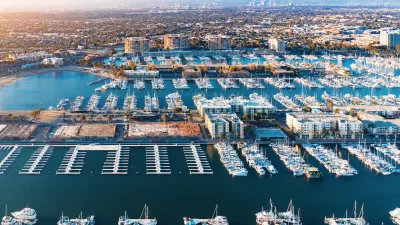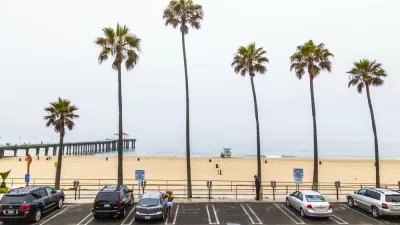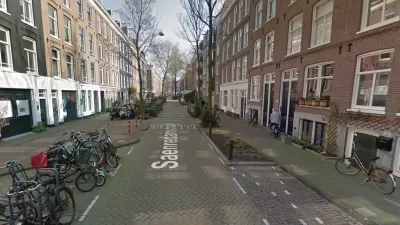This summer, the seashore town of Wildwood is charging a fee for people with the right cars to park in a very convenient location.
The start of summer, writes Nick Corsaniti in The New York Times, is also the start of "the perpetual battle over beach access in New Jersey, where towns along the 127-mile coast regulate parking spaces, meter rates, beach access points and, most contentiously, beach tag prices."
The town of Wildwood, in a predictably controversial effort to raise revenue and draw more visitors, has built a tunnel under its boardwalk for cars.
Officials are using their vast wealth of sandy expanse to welcome any four-wheel-drive vehicles (not to be confused with all-wheel-drive, which will get stuck in the sand) to park on the newly accessible beach for $10 a day or $20 during special events like concerts. Nearby private lots can charge anywhere from $15 to as much as $30 on holiday weekends.
Corsaniti also reports on several other beach access controversies, including a town that just starting charging to park and a lawsuit over restricting access to certain motorized vehicles.
FULL STORY: A New Jersey Town Actually Adds Beach Parking. And It’s on the Beach.

Trump Administration Could Effectively End Housing Voucher Program
Federal officials are eyeing major cuts to the Section 8 program that helps millions of low-income households pay rent.

Planetizen Federal Action Tracker
A weekly monitor of how Trump’s orders and actions are impacting planners and planning in America.

Ken Jennings Launches Transit Web Series
The Jeopardy champ wants you to ride public transit.

Crime Continues to Drop on Philly, San Francisco Transit Systems
SEPTA and BART both saw significant declines in violent crime in the first quarter of 2025.

How South LA Green Spaces Power Community Health and Hope
Green spaces like South L.A. Wetlands Park are helping South Los Angeles residents promote healthy lifestyles, build community, and advocate for improvements that reflect local needs in historically underserved neighborhoods.

Sacramento Plans ‘Quick-Build’ Road Safety Projects
The city wants to accelerate small-scale safety improvements that use low-cost equipment to make an impact at dangerous intersections.
Urban Design for Planners 1: Software Tools
This six-course series explores essential urban design concepts using open source software and equips planners with the tools they need to participate fully in the urban design process.
Planning for Universal Design
Learn the tools for implementing Universal Design in planning regulations.
Heyer Gruel & Associates PA
Ada County Highway District
Institute for Housing and Urban Development Studies (IHS)
City of Grandview
Harvard GSD Executive Education
Toledo-Lucas County Plan Commissions
Salt Lake City
NYU Wagner Graduate School of Public Service





























